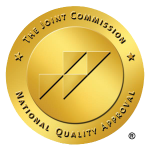Dialectical Behavioral Therapy in Los Angeles, California

In many cases, addiction is a result of emotional stress that leads people to look for alcohol or other substances as a means of temporary comfort. DBT therapy in Los Angeles provides a way to manage emotions and deal with these stressors.
By regularly practicing coping skills individuals can become aware of triggers that cause them distress, and can therefore learn to face difficult situations without engaging in addictive or harmful behaviors.
What is Dialectical Behavioral Therapy (DBT)?
Dr Marsha Linehan developed dialectical behavior therapy (DBT) as a therapeutic practice intended to be effective in treating borderline personality disorder in the 1980s. However, since then, it has evolved with a few modifications to address different types of mental disorders such as depression, eating disorders, and addiction.
Those who seek direction and assistance in managing their emotions and behaviors might benefit greatly from dialectical behavior therapy in Los Angeles DBT therapy teaches individuals to accept themselves and their behaviors as they are and supports them in learning how to alter their negative habits and thus improve their lives.
Dialectical behavioral therapy is a multimodal treatment approach that involves the combination of cognitive behavioral therapy methods It includes individual therapy, group therapy, and skills training as well as phone coaching. This approach is based on the idea that most individuals who have problems regulating emotions have a tendency to act impulsively and self-destructively when faced with a distressing situation. It is aimed at equipping people with skills to manage emotions and relationships in order to deal with stressful situations. The first steps towards emotional well-being are within reach. For personalized DBT therapy, contact the Los Angeles Addiction Center.
How Does Our Los Angeles DBT Therapy Work?
DBT therapy is administered by licensed and seasoned therapists who are experts in this treatment method. The DBT therapy process starts with a preliminary assessment, through which the therapist and client together determine which goals are to be achieved and the best approach to use.
The DBT therapist then spends the first session getting to know the client and understanding his or her particular needs and obstacles. This all-around evaluation allows the therapist to acquire a fully comprehensive vision of the client’s situation and create an individual treatment plan.
When treatment starts, individuals typically have regular weekly therapy sessions. These sessions create a secure and non-judgmental environment in which a person can share their thoughts and feelings to work towards attaining their therapeutic goals.
The therapist utilizes several evidence-based treatment modalities and interventions to guide the individuals through their emotional challenges. They can apply cognitive-behavioral techniques, such as identifying and challenging negative thinking, or offer mindfulness training to support individuals with remaining in the present to help manage their emotions.
Moreover, individuals are also recommended to take part in group skills training apart from individual therapy. These skill groups are aimed at creating a controlled learning environment in which people have an opportunity to practice and perfect their DBT skills.
Patients have many opportunities to benefit from our Los Angeles group therapy for addiction. This program allows the participants to acquire a variety of pragmatic skills designed to help them control their emotions, develop better interpersonal relationships, and cope with difficult circumstances. These skills can include emotion regulation techniques, distress tolerance strategies, and communication skills.
Individuals are expected to use the acquired skills outside the sessions for their day-to-day lives. The therapist may assign homework assignments or recommend specific activities that will help individuals continue working on and reinforcing their new skills.
Our DBT therapists support and guide the client during the dialectical behavior therapy program by giving constant feedback. During the process, they work with the client to monitor progress, revise goals as needed, and revise the treatment plan where necessary in order to reach each individual’s needs.
In summary, DBT treatment in Los Angeles provides an integrated and personalized treatment program that enables people to acquire the necessary skills and techniques to live a better and more harmonious life. It is easier for one to seek positive change and experience more peace of mind with the help of a professional therapist and community that supports their efforts.
Types Of Dialectical Behavior Therapy
There are different types of dialectic behavioral therapy that may be utilized depending on the individual’s needs and treatment goals. The main components of a dialectical behavior therapy program are individual therapy, skills groups, phone coaching, and therapist consultation meetings.
In its turn group skills training consists of four main modules, which are: emotional regulation, interpersonal effectiveness, distress tolerance, and mindfulness. Patients are given a supportive and disciplined environment in each session to master these skill sets. By better understanding and practicing the skills in their everyday activities, patients become more confident and self-reliant in overcoming challenging situations.
- Emotional Regulation: DBT therapy in Los Angeles’ group training stresses onemotional regulation skills that allow an individual to know and manage his or her emotions positively and adaptively. Participants learn skills to identify feelings and learn strategies to control strong emotions to avoid impulsive behaviors. By gaining control over their emotional responses with the help of these skills, individuals can make more independent and informed decisions throughout their everyday lives.
- Interpersonal Effectiveness: Interpersonal effectiveness skillsaim to build positive interactions and well-balanced relationships between individuals. The participants learn to express and show their needs and limits, as well as learn methods to resolve conflicts and negotiate compromises. All these skills improve an individual’s capacity to form and sustain meaningful relationships.
- Distress Tolerance: Distress tolerance helps people deal with highly emotional situations that cause strong feelings of distress without engaging in self-harming behaviors. It teaches the participants to tolerate distress by practicing skills such as self-soothing activities, distraction techniques, and radical acceptance. These skills help people survive bad moments without resorting to negative habits.
- Mindfulness: Mindfulness skills are taught during the dialectic behavioral therapy group training and help people learn to be in the present moment, accepting things as they are, without judgment. Patients gain the ability to observe their thoughts, feelings, and sensations without being overwhelmed by them. When practicing mindfulness, people tend to understand themselves better and can respond to difficult situations with clarity and kindness.
Ready to embark on your journey to emotional well-being? Contact us to explore personalized Dialectical Behavior Therapy (DBT) and take the first step toward positive change. Your path to a balanced and fulfilling life starts at DBT therapy in Los Angeles.
Request a Confidential Callback
The Difference Between DBT And CBT Therapy
Though dialectic behavioral therapy and cognitive behavioral therapy (CBT) are evidence-based therapies that are used in the treatment of addiction and many mental disorders, their difference is in the way of interpretation and approach to the problem.
Cognitive behavioral therapy mainly concentrates on the identification and the challenging of negative thoughts and beliefs and facilitates their transformation into healthy and adaptive ones. It highlights the importance of thoughts in determining emotions and behaviors and provides a way of instilling more positive and realistic perceptions in the individual.
In contrast, DBT therapy in Los Angeles focuses on the validating and acceptance of people’s thoughts and emotions and also teaches skills that help them to better control and regulate them. It understands the need to accommodate both acceptance and change in the individual and supports people in finding a middle path by admitting the legitimacy of their experiences and simultaneously, their need to search for better ways of coping with those experiences.
If you are seeking help but don’t know which kind of therapy suits you, do not hesitate to contact us to schedule an appointment with a therapist and discuss which approach may be most beneficial for your specific needs and goals.
What Does Dialectical Behavior Therapy Treat?
DBT therapy in Los Angeles is effective when treating various mental health conditions, starting from substance use disorders to Borderline Personality Disorder (BPD), depression, anxiety disorders, eating disorders, and others. The skills learned in DBT therapy can enable one to deal with their emotions in a healthy way, make better decisions, and improve their relationships while decreasing self-destructive behaviors. Through learning appropriate coping mechanisms and building a robust support network, they can make drastic improvements in terms of their overall mental health.
This therapy is an especially productive method if we use dialectical behavior therapy for addiction treatment. Dialectical behavior therapy in Los Angeles is a pragmatic and humanistic method aimed at helping addict clients with SUDs to live more meaningful and productive lives. Attention is given to increasing trigger awareness, developing positive distress management mechanisms to overcome cravings, and promoting activities supporting long-term sobriety.
As a result of dialectical behavior therapy addiction treatment, the client gains a lot of knowledge about their patterns of thoughts and behavior that drive them into addiction. They also learn to navigate and change these patterns, to acquire the understanding of emotions such as anger and depression that often lead to addictive behaviors. Improved communication skill assists in conflict resolution, thus promoting relationships with supportive family members and peers during the recovery process.
For dialectical behavior therapy addiction treatment, success lies in identifying an expert therapist who specializes in addressing various substance use disorders. Individuals, when supported, and with the intention of change, can learn the necessary skills to manage addiction and achieve long-term recovery goals.
Benefits of DBT Therapy in Los Angeles, CA
At our Los Angeles Addiction Treatment Center we offer a comprehensive DBT program designed to meet the specific needs of each individual. We provide a wide variety of therapeutic activities that can additionally improve the skills learned in sessions.
- Starting from the main therapeutic benefits of DBT for alcohol use disorder, such as improved emotional regulation, enhanced interpersonal relationships, increased self-awareness, reduced self-destructive behaviors, greater ability to cope with distressing situations, improved problem-solving skills, and much more, our dialectical behavior therapy los angeles is perfect for individuals, who are seeking support for their addiction treatment.
- In our DBT therapy in Los Angeles, we advocate for active participation. It is not about passive experiences that clients undergo, we encourage them to work with their therapists closely, promoting a feeling of accountability and possession in their recovery process.
- Therapy is an emotional thing, and we understand that. Our team has a deep commitment to creating an environment that honors everyone’s recovery process, a place where everyone feels respected.
- To be a member of our vibrant community means to do more than visit DBT therapy in Los Angeles. This gives clients an opportunity to be linked to other people who have the same aspirations, thus creating a supportive network among members of the recovery society.
- Our commitment doesn’t only apply to the time someone stays in treatment. The abilities gained during DBT Treatment in Los Angeles and other therapeutic pursuits become lifelong resilient resources, providing individuals with direction as they travel towards better well-being.
DBT Therapy in Los Angeles, California Today
As one of the most renowned providers of DBT in Los Angeles, Hope Treatment Center strives to create a safe and comfortable environment for adults suffering from substance abuse and co-occurring mental health disorders. We provide different levels of care, and customized care options, with all therapies and services administered by a dedicated and empathetic team of professionals. Contact us today and learn more about dialectical behavior therapy in Los Angeles and a variety of other services that will give you or your loved one the best chance to combat addiction.



